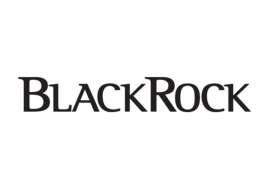BlackRock gains as ETFS offer households haven: Australia credit

By Bloomberg
Australian exchange-traded funds show investors are seeking the
safety of sovereign debt amid concern the central bank will fail to
revitalize the economy.
ETFs targeting government fixed-income securities saw a 76 percent jump in assets this year, while those that buy shares grew 19 percent, according to data compiled by Bloomberg. Sovereign note funds listed on exchanges returned 11 percent in 2014, while those for equities gained 4.3 percent.
Demand for Australia’s debt is rising as a global economic slowdown affects the world’s 12th-biggest economy, investment in the nation’s mining industry ebbs and prices for commodity exports tumble. Reserve Bank of Australia Governor Glenn Stevens said policy makers need to keep record-low interest rates “for some time yet,” helping drive appetite for debt.
“The Australian bond market has done quite well this year,” said Stephen Miller, the head of fixed income for the nation at BlackRock Inc. in Sydney. “Unlike the U.S., Australia doesn’t have a tradition or even a culture of investing in bonds.” ETFs have “made bonds accessible to retail investors.”
ETFs are still small relative to Australia’s government bond market and probably don’t reflect what overseas investors including Japanese money managers and central banks, the biggest buyers this year, are doing, Miller said. About 70 percent of the country’s government securities are held by foreign investors.
Of BlackRock’s A$16 billion ($13.8 billion) portfolio of Australian bonds and cash, A$170 million is in ETFs, he said in a telephone interview yesterday.
Gaining Traction
BlackRock introduced its funds about three years ago, Miller said. “We’ve really noticed the traction this year.”
Db x-trackers II Australia SSA Bonds UCITS ETF has returned 16 percent this year, the biggest gain of the three exchange- traded funds that focus on government debt in the nation and have year-to-date returns, according to data compiled by Bloomberg.
Russell Australian Select Corporate Bond ETF returned 3.7 percent. Assets increased 31 percent this year in the fund, the only one that focuses on Australian company debt, the data show.
Accommodative Policy
The RBA reiterated in the minutes of its Nov. 4 meeting that a period of stability was merited for rates, which have been unchanged at a record-low 2.5 percent for 15 months. Stevens said in a speech last week that accommodative monetary policy is justified because the Australian economy has spare capacity and inflation is contained.
Swaps have priced in eight basis points of interest-rate cuts for the coming 12 months, based on Credit Suisse Group AG data. Traders expected almost a quarter percentage point of increases in November 2013.
Since then, prices plunged for Australia’s two biggest exports, iron ore and coal. Iron ore tumbled almost 50 percent this year, while coal slid 27 percent.
A slowdown in global economic growth is infecting China, the biggest buyer of Australia’s commodities, prompting the Asian nation’s central bank to cut interest rates this month.
In October, the Bank of Japan increased the amount of money it pumps into the nation’s economy, which shrank in the second and third quarters. European Central Bank President Mario Draghi said last week that policy makers must drive inflation higher quickly and will broaden their asset purchases if needed.
Waning investment in Australia’s mining industry will be a “significant drag” on growth, Alexandra Heath, head of the Reserve Bank’s economic analysis department, said last week.
AAA Rating
Australia offers the security of a nation that carries a AAA debt rating and yields that are higher than those available in other developed nations.
Ten-year bonds pay 3.20 percent, versus 2.30 percent in the U.S., 0.78 percent in Germany and 0.45 percent in Japan. The Bloomberg AusBond Treasury index of Australian government debt returned 7.5 percent this year, compared with a 3.9 percent gain for the S&P/ASX 200 Index of shares.
“Given the slowdown around the world, you would have thought that people err on being cautious,” said Roger Bridges, the chief global strategist for interest rates and currencies in Sydney at Nikko Asset Management Australia Ltd. “Bond funds have outperformed. It’s been an up and down ride for stock holders,” he said in a telephone interview yesterday. The company manages the equivalent of $19.8 billion.
Here we are to serve you with news right now. It does not cost much, but worth your attention.
Choose to support open, independent, quality journalism and subscribe on a monthly basis.
By subscribing to our online newspaper, you can have full digital access to all news, analysis, and much more.
You can also follow AzerNEWS on Twitter @AzerNewsAz or Facebook @AzerNewsNewspaper
Thank you!
